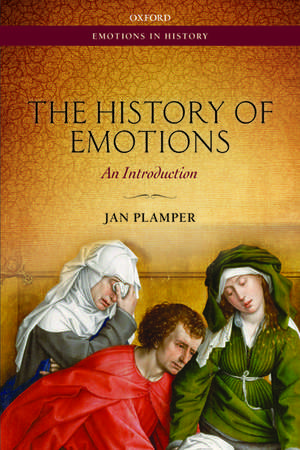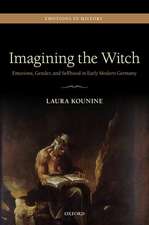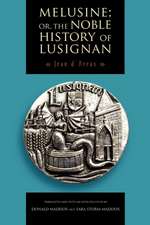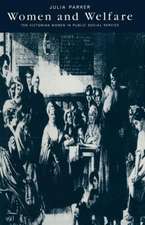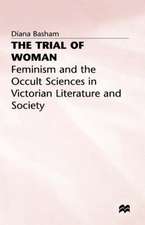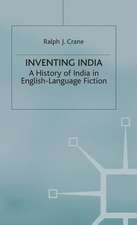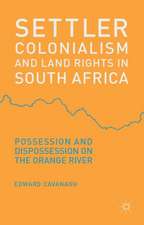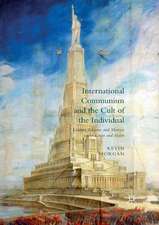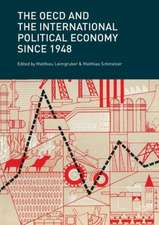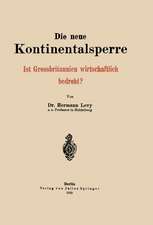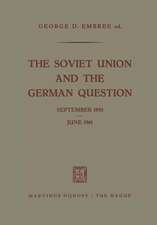The History of Emotions: An Introduction: Emotions in History
Autor Jan Plamperen Limba Engleză Paperback – 6 iul 2017
Din seria Emotions in History
- 30%
 Preț: 516.46 lei
Preț: 516.46 lei - 18%
 Preț: 168.59 lei
Preț: 168.59 lei - 26%
 Preț: 558.10 lei
Preț: 558.10 lei - 25%
 Preț: 494.04 lei
Preț: 494.04 lei - 26%
 Preț: 517.04 lei
Preț: 517.04 lei - 25%
 Preț: 515.93 lei
Preț: 515.93 lei - 5%
 Preț: 724.75 lei
Preț: 724.75 lei - 5%
 Preț: 235.06 lei
Preț: 235.06 lei - 17%
 Preț: 583.32 lei
Preț: 583.32 lei - 19%
 Preț: 192.30 lei
Preț: 192.30 lei - 30%
 Preț: 501.52 lei
Preț: 501.52 lei - 30%
 Preț: 587.18 lei
Preț: 587.18 lei - 26%
 Preț: 599.41 lei
Preț: 599.41 lei - 16%
 Preț: 582.53 lei
Preț: 582.53 lei - 25%
 Preț: 598.76 lei
Preț: 598.76 lei - 25%
 Preț: 515.46 lei
Preț: 515.46 lei
Preț: 229.45 lei
Preț vechi: 277.28 lei
-17% Nou
Puncte Express: 344
Preț estimativ în valută:
43.90€ • 45.96$ • 36.33£
43.90€ • 45.96$ • 36.33£
Carte tipărită la comandă
Livrare economică 25-31 martie
Livrare express 04-08 martie pentru 79.88 lei
Preluare comenzi: 021 569.72.76
Specificații
ISBN-13: 9780198744641
ISBN-10: 0198744641
Pagini: 368
Ilustrații: 38 black and white illustrations
Dimensiuni: 156 x 234 x 20 mm
Greutate: 0.57 kg
Editura: OUP OXFORD
Colecția OUP Oxford
Seria Emotions in History
Locul publicării:Oxford, United Kingdom
ISBN-10: 0198744641
Pagini: 368
Ilustrații: 38 black and white illustrations
Dimensiuni: 156 x 234 x 20 mm
Greutate: 0.57 kg
Editura: OUP OXFORD
Colecția OUP Oxford
Seria Emotions in History
Locul publicării:Oxford, United Kingdom
Recenzii
this introductory volume will be difficult to surpass
This book throws a lifeline to anyone trying to navigate the present high tide of multidisciplinary material on the emotions ... both scholarly and enjoyable.
Plamper clears the way for others to approach the history of emotions by mapping the multidisciplinary intellectual architecture that has supplied us with a nature/culture dualism in contemporary understandings of what emotions are and where they come from ... Plamper is at his best, cutting a swathe through disciplines where other historians might fear to tread.
excellent and thought-provoking ... This is an indispensible text for anyone interested in this fast developing new subdiscipline of cultural history, and provides a refreshing perspective on emotions which are the everyday focus of so much work in mental health. As clinicians we are often less aware of the sociocultural aspects of this work than we might be, and perhaps also take the assertions of our neuroscience colleagues on faith rather too readily. That a historian can provide such an informed and thought-provoking account of contemporary approaches to emotions is salutary.
dazzling ... [Plamper] is a natural storyteller, and has a beautifully smooth writing style (thanks must also go to his translator) that makes the book accessible to readers at all levels ... his book will prompt intellectual exchanges for years to come.
the book as a whole provides an admirable introduction to the virtues of thinking historically about emotions -- not just thinking about emotions in history ... the book serves as a splendid guide to further reading.
Plamper offers a road map for bridging the gap between and potentially reconciling social constructivists and essentialists working on human emotions ... Essential.
a most welcome history and genealogy of an extremely diverse field
For readers interested in the mid-nineteenth- and twentieth-century origins of the study of emotion in the emerging academic fields of anthropology, psychology, biology, and history, the book provides detailed summaries and commentaries on 150 years of research.
Plamper's book sets out to provide an introduction to past and current research in the field. This is an ambitious aim, but one in which Plamper succeeds admirably, providing lucid and stimulating distillations of key work and debates ... anyone looking for a readable and engaging introduction to this fascinating field would do well to read Plamper's stimulating survey.
The History of Emotions is a wonderfully learned work that ranges gracefully from classical examples to considerations of mood, advertising and emotions. It will be valuable to anyone embarking upon a psychologically-inflected study, and it offers an important and timely guide to a number of fascinating and complex debates.
Plamper gave himself the task of developing a theory that would overcome the dichotomy between universalist and social constructionist models of emotion ... And by critiquing the various forms of reductionism to which emotion studies have been subject, he has done something even more important: He has reopened these questions.
Plamper takes readers on a whirlwind tour of emotion studies from Aristotle to mirror neurons and across the disciplines ... History students interested in joining the gold rush but unsure of where to dig or which pioneers to follow will find a mine of information here (not least in a useful glossary and bibliography that has been updated from the original German edition). This book will also challenge skeptical historians wondrous at what the fuss is all about, and it will tickle the curiosity of the general reader befuddled by how history could be such (dead serious) fun.
This book throws a lifeline to anyone trying to navigate the present high tide of multidisciplinary material on the emotions ... both scholarly and enjoyable.
Plamper clears the way for others to approach the history of emotions by mapping the multidisciplinary intellectual architecture that has supplied us with a nature/culture dualism in contemporary understandings of what emotions are and where they come from ... Plamper is at his best, cutting a swathe through disciplines where other historians might fear to tread.
excellent and thought-provoking ... This is an indispensible text for anyone interested in this fast developing new subdiscipline of cultural history, and provides a refreshing perspective on emotions which are the everyday focus of so much work in mental health. As clinicians we are often less aware of the sociocultural aspects of this work than we might be, and perhaps also take the assertions of our neuroscience colleagues on faith rather too readily. That a historian can provide such an informed and thought-provoking account of contemporary approaches to emotions is salutary.
dazzling ... [Plamper] is a natural storyteller, and has a beautifully smooth writing style (thanks must also go to his translator) that makes the book accessible to readers at all levels ... his book will prompt intellectual exchanges for years to come.
the book as a whole provides an admirable introduction to the virtues of thinking historically about emotions -- not just thinking about emotions in history ... the book serves as a splendid guide to further reading.
Plamper offers a road map for bridging the gap between and potentially reconciling social constructivists and essentialists working on human emotions ... Essential.
a most welcome history and genealogy of an extremely diverse field
For readers interested in the mid-nineteenth- and twentieth-century origins of the study of emotion in the emerging academic fields of anthropology, psychology, biology, and history, the book provides detailed summaries and commentaries on 150 years of research.
Plamper's book sets out to provide an introduction to past and current research in the field. This is an ambitious aim, but one in which Plamper succeeds admirably, providing lucid and stimulating distillations of key work and debates ... anyone looking for a readable and engaging introduction to this fascinating field would do well to read Plamper's stimulating survey.
The History of Emotions is a wonderfully learned work that ranges gracefully from classical examples to considerations of mood, advertising and emotions. It will be valuable to anyone embarking upon a psychologically-inflected study, and it offers an important and timely guide to a number of fascinating and complex debates.
Plamper gave himself the task of developing a theory that would overcome the dichotomy between universalist and social constructionist models of emotion ... And by critiquing the various forms of reductionism to which emotion studies have been subject, he has done something even more important: He has reopened these questions.
Plamper takes readers on a whirlwind tour of emotion studies from Aristotle to mirror neurons and across the disciplines ... History students interested in joining the gold rush but unsure of where to dig or which pioneers to follow will find a mine of information here (not least in a useful glossary and bibliography that has been updated from the original German edition). This book will also challenge skeptical historians wondrous at what the fuss is all about, and it will tickle the curiosity of the general reader befuddled by how history could be such (dead serious) fun.
Notă biografică
Jan Plamper obtained a BA from Brandeis University and a PhD from the University of California, Berkeley, after which he taught at the University of Tübingen and from 2008 to 2012 was a Dilthey Fellow at the Center for the History of Emotions, Max Planck Institute for Human Development, in Berlin. He is co-editor, with Benjamin Lazier, of Fear: Across the Disciplines (2012); and co-editor, with Marc Elie and Schamma Schahadat, of Rossiiskaia imperiia chuvstv: Podkhody k kul'turnoi istorii emotsii [In the Realm of Russian Feelings: Approaches to the Cultural History of Emotions] (2010). He has also recently authored The Stalin Cult: A Study in the Alchemy of Power (2012).
